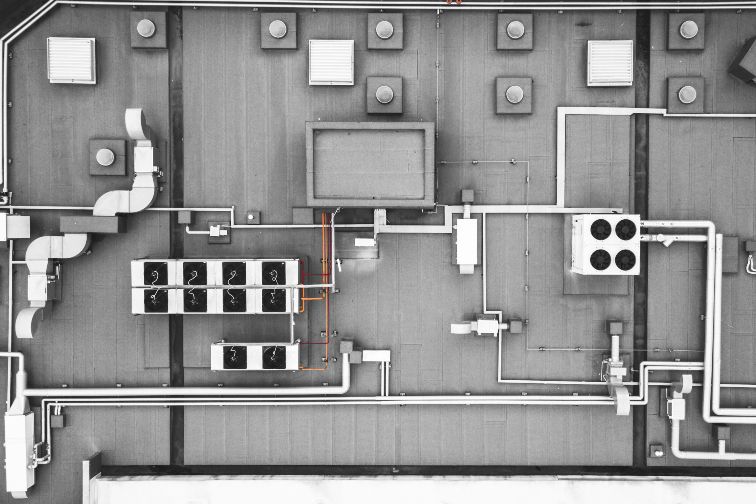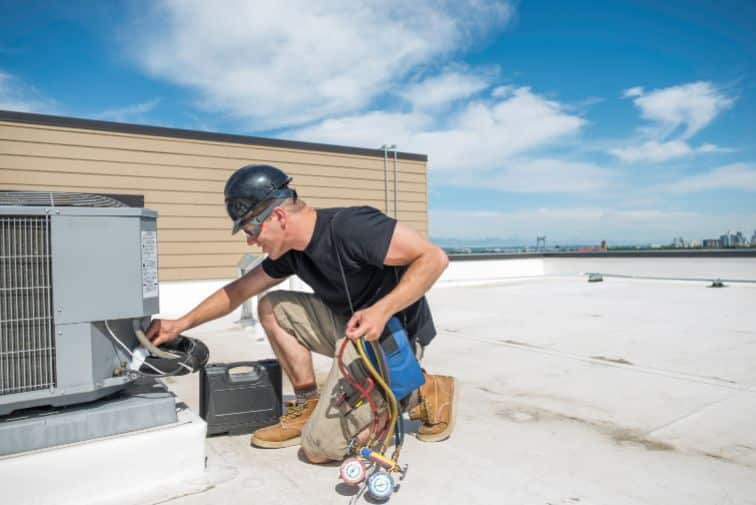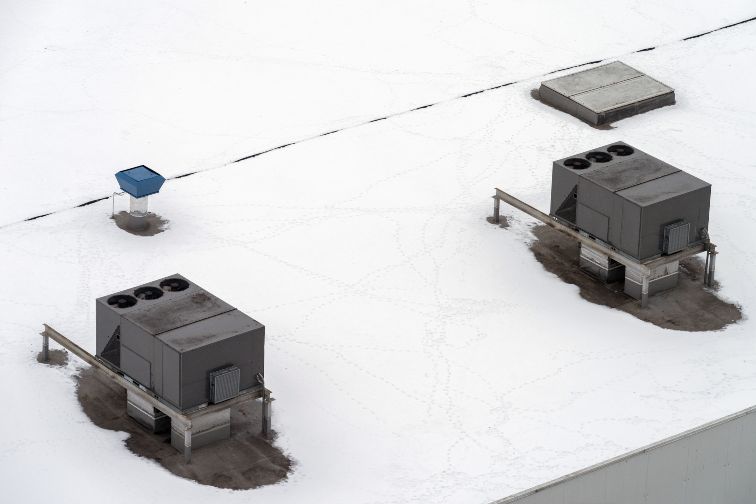
Rooftop HVAC units are an increasingly popular addition to many commercial buildings and even new homes. But, there’s a downside to having them as well. When your HVAC system is located on the roof of your building, it’s subject to more wear and tear than when it’s located indoors.
If your roof is damaged by an HVAC unit, you should have it looked at by a roofing professional.
Placing HVAC systems on the roof – advantages and disadvantages
HVAC units are an eyesore, and many people tend to put them on the roof of the commercial building just to keep them out of sight. However, if not installed properly, these units tend to cause roof damage. Without proper care, they can cause numerous roof problems that only a roofing contractor would be able to take care of.
Advantages of Rooftop HVAC units
No Noise Pollution
Having a regular HVAC unit can be quite loud and disrupt your daily life. That’s just one of the reasons people tend to get a rooftop unit – to minimize the noise this rooftop unit makes, while still enjoying the air conditioning.
Out of Sight Maintenance
HVAC technicians can easily take a look and repair if there’s any serious damage to the faulty units, and even install a new HVAC unit, all without you being aware of it.
The HVAC technician can collaborate with the facility managers for commercial buildings, or be in direct line with residential clients.

Space-saving Unit
Rooftop HVAC units are a perfect substitution for regular HVAC units, especially when it comes to commercial roofs because they save space by using roof space.
Proper Drainage Lines and No Water Pooling
The excess condensation from your HVAC unit needs to go somewhere. The drainage line funnels excess condensation to the ground, keeping the roof’s membrane intact.
Placing the unit on your roof lets any condensation come down the drainage lines without the water pooling on the streets, making a mess for passers-by.
Disadvantages of Rooftop HVAC unit
Damage to the Roof Membrane
The roof membrane can be compromised when an HVAC unit sits on it for extended periods or if this system leaks. If this happens, you could have mold and mildew issues, or worse – a leak. You’ll need to call a roofing contractor immediately to assess the damage and repair the roof from leaking if necessary.
Excessive foot traffic is another potential way to damage the roof. If there’s a lot of foot traffic in the areas where that is not supposed to happen, the roof will inevitably be damaged. That’s why it is important that the HVAC technician walks on the walkway that is designed for it.
Improper HVAC System Installation
It is very important to have a professional roofing contractor present while installing an HVAC unit on the roof. During the installation process, if the HVAC unit is not properly installed, it can cause long-term damage to the roofing materials.
A system that is properly sealed and installed correctly cannot damage the roof.
Condensation Caused By the Rooftop HVAC System
Condensation is one of the primary causes of roof damage from rooftop units. Heat makes air vaporize more. This moisture can cause issues with older roofs. The metal coils may rust and cause leaks, requiring costly future repairs.
If you have an old shingle roof, the dampness may cause mold growth or other roof problems. Regularly servicing and checking your HVAC system will help prevent condensation on your roof.
Adverse Weather Conditions
The rooftop HVAC unit is subject to more wear and tear than a standard HVAC system because it’s exposed to the elements. This means that these units are likely to need more maintenance because of the adverse weather conditions. In addition, they are also susceptible to damage from rain, high winds as well as heavy snowfall.

Costly Repairs for HVAC units and the Roof
One of the potential downsides to installing an HVAC unit on the roof is the increased wear and tear that it can cause on your roof.
If you have an HVAC unit on the roof and you notice any damage, get in contact with a roofing contractor as soon as possible for premier quality roofing repairs.
By having a roofing professional come out for an inspection, you minimize the risk of putting the structural integrity of your building at risk.
How to minimize the possibility of damage to a roof
The best way to install HVAC units on a commercial roof is to do it while installing the roof.
While doing so, you’ll have experienced roofing professionals on-site to help navigate the installation process, especially if you need to install industrial-strength HVAC units.
Contact us today and book an estimate to help your roof be leak-free for years to come!